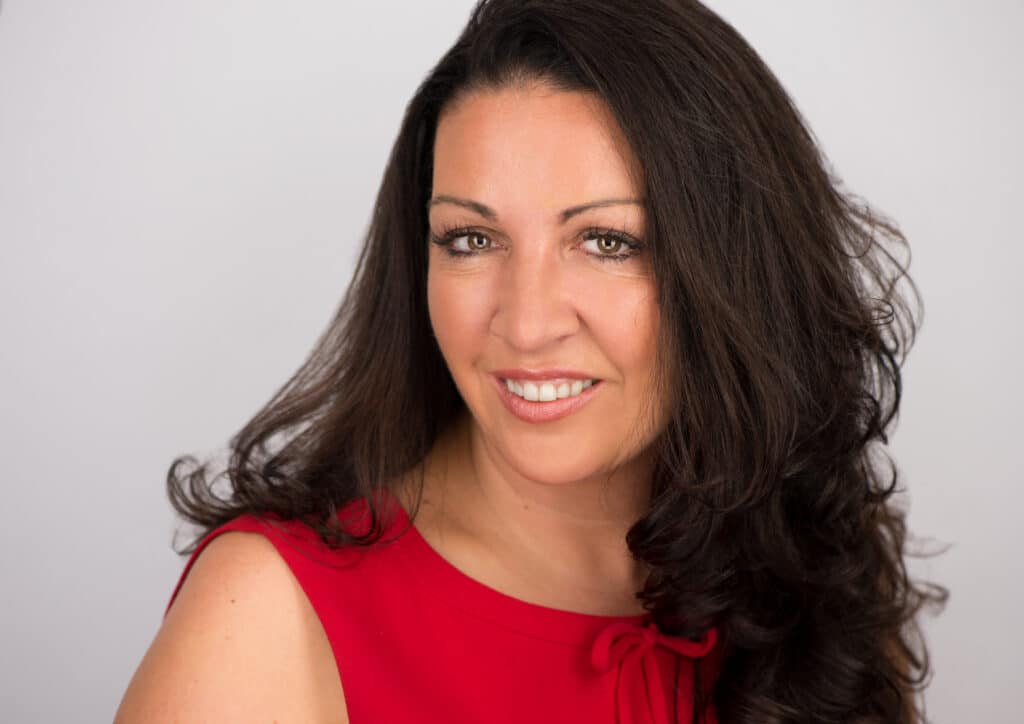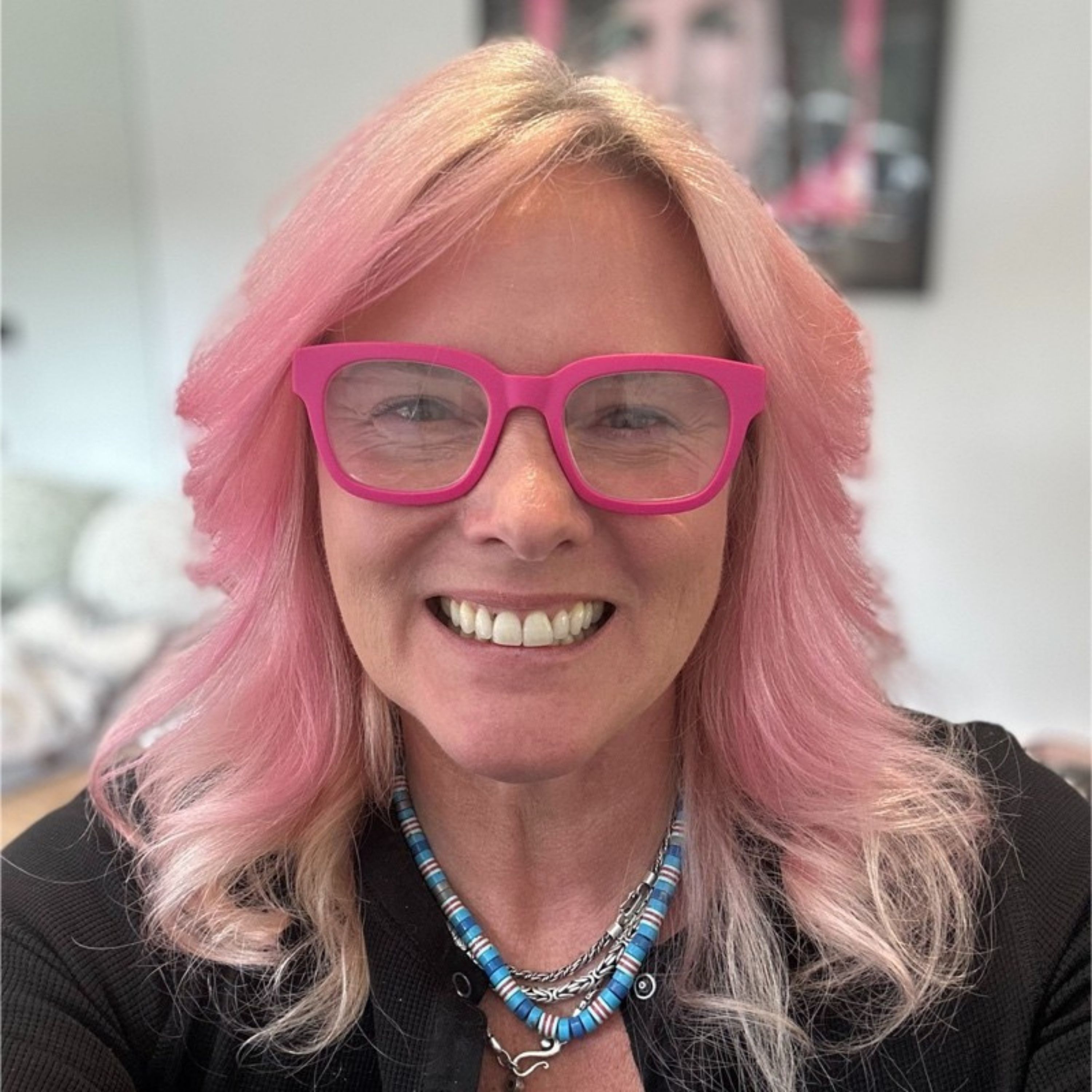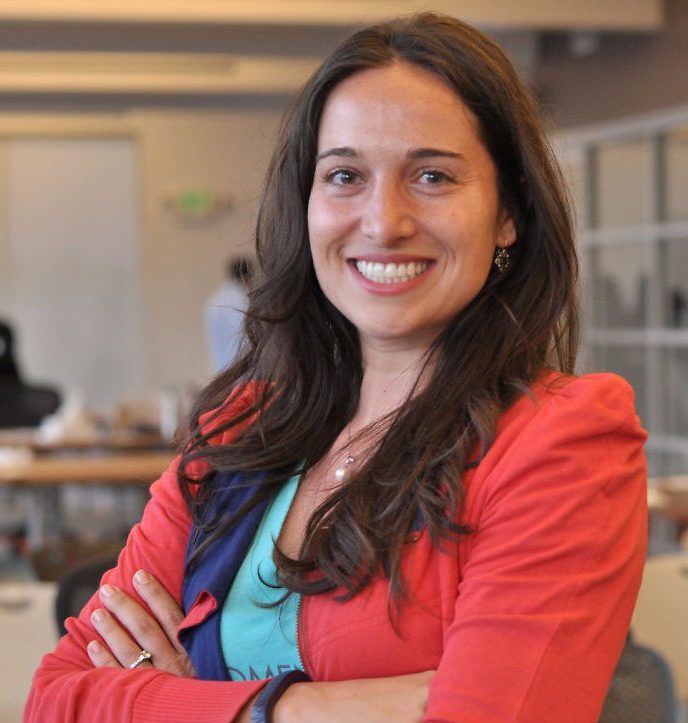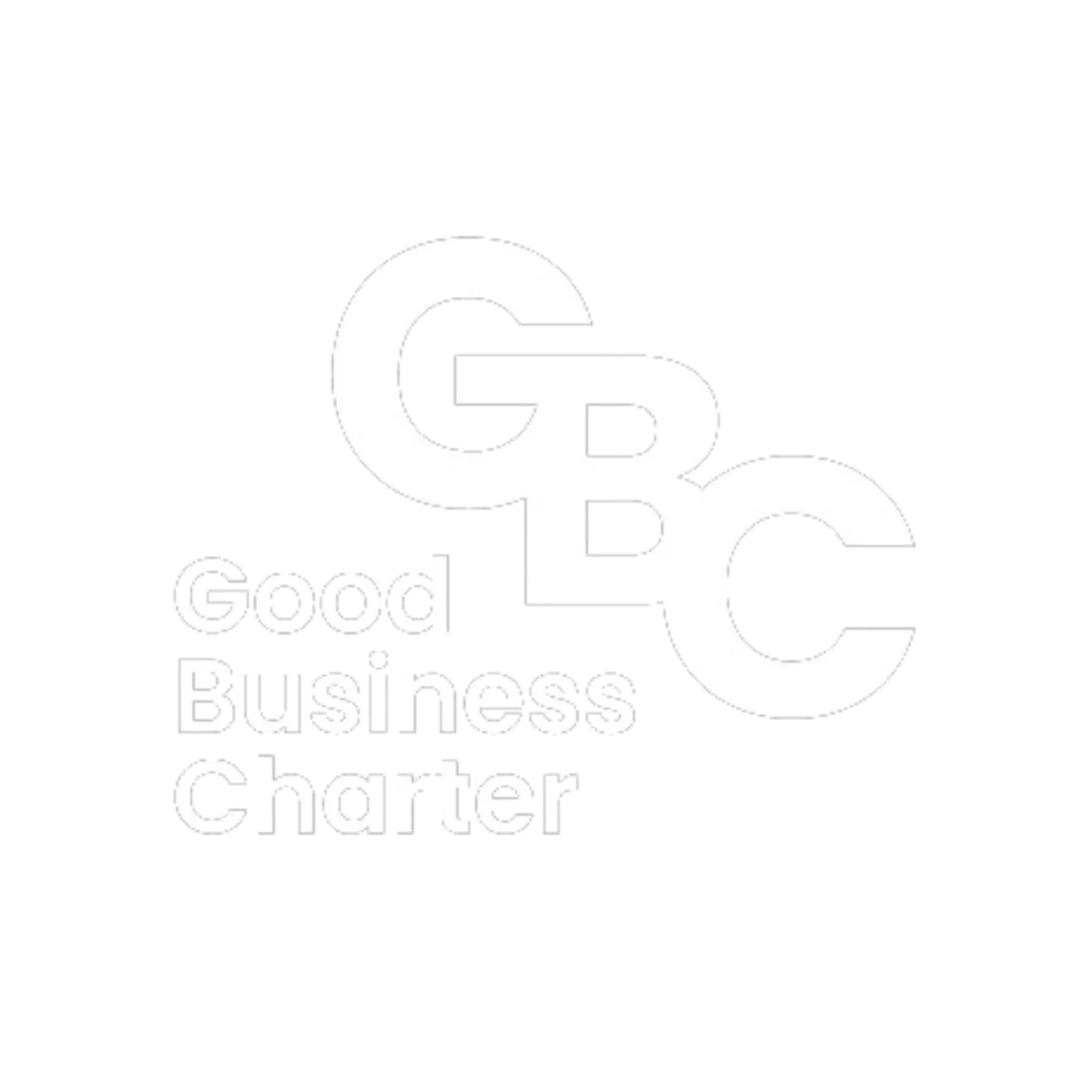
Tech Talent Spotlight Series: Vanessa Vallely OBE
01 Nov, 202310Vanessa is one of the UK’s most well-networked women and has provided keynotes on a variety ...

Vanessa is one of the UK’s most well-networked women and has provided keynotes on a variety of career-related topics for over 500 companies worldwide.
Vanessa is also one of the UK’s most prominent figures in gender equality and often provides guidance and consultancy to both government and corporate organisations who are seeking to attract, develop and retain their female talent. Vanessa was awarded her OBE in June 2018 for her services to women and the economy. At the height of her successful 25-year career in financial services, Vanessa launched the award-winning WeAreTheCity.com in 2008 as a vehicle to help women progress in their careers. WeAreTheCity.com now has over 120,000 members and provides resources/conferences/awards/jobs to women across the UK. Vanessa is also the -founder of UK UK-wide diversity forum Gender Networks. Gender Networks (formerly The Network of Networks) brings together diversity leaders from 85 cross-sector firms to share best practices on a quarterly basis.
Vanessa is also the author of the book “Heels of Steel: Surviving and Thriving in the Corporate World” which tracks her career and shares 13 chapters of tips to succeed in the workplace. Over the past twelve years, she has accumulated over 20 industry awards, including Women in Banking & Finance’s Champion for Women, Financial News Top 100 Rising Star, The International Alliance for Women Top 100 Women globally & Brummells Top 30 London Entrepreneurs. In 2015 Vanessa was in GQ UK’s Top 100 Connected Women and the Evening Standard’s 1000 Most Influential Londoners. Vanessa is a regular guest on TV and radio and also sits on the Government Digital Services advisory board. Vanessa is also the Pearly Queen of The City of London, a tradition that has been in her family for over 100 years. She is an avid charity worker and sits on the board for Cancer Research UK as one of its Women of Influence. Vanessa also sits on the Centenary Action Group founded by Dr Helen Pankhurst CBE.
Keynotes and workshops include The Power of Profile, The Power of Mentoring, Speed Networking, Speed Mentoring, plus her Planning and Goals career workshop. Vanessa is also available as a panelist, facilitator, and leadership development programme host. All talks can be tailored towards specific audiences
To begin with, tell me a bit about yourself and your journey to what you do today.
I'm Vanessa Vallely, the CEO and founder of WeAreTheCity and WeAreTechWomen. These are websites that provide women with resources to advance their careers. We also organise summits, conferences, awards, and research to help companies attract, develop, and retain female talent. We created We Are Tech Women to level the playing field for women in tech, ensuring more women have access to leadership positions and influential decision-making roles.
Now, regarding my career, I started at 16 without going to college or university. I had a knack for computers and ended up in a tech company introducing PCs and software to the city. Many resisted the change, much like the perception of AI today. I transitioned into a training manager role, and later, I worked for Reader's Digest, teaching myself various software packages.
At 21, I founded my training agency, albeit with no business acumen. I had only one trainer - myself. Afterward, I returned to corporate, jumped through multiple financial institutions, frequently switching jobs every two years to increase my earnings. I reached a senior position at Barclays as one of their technology transformation COO’s, retiring their legacy systems.
It was just before that role that I realised that I wanted to build something to help women progress in their careers. I was often the only senior woman in the room and wanted to create something to empower women to access resources to grow their careers – I wanted more women in the room. That's how WeAreTheCity was born. Today, I run both organisations, reaching around 110,000 women in the UK and globally. We've upskilled around 40,000 women over the years, and we have 1,800 outstanding award winners across 30 different industries. We are lucky to be supported and sponsored by around 100 different companies.
What sets our platform apart is the narrative of the conversation across our events. We are not afraid to address uncomfortable topics concerning the advancement of women in the tech industry. In terms of our awards, we don't just present women with awards; we go a step further by offering a year-long program alongside a number of partners to support their ongoing development. This program is made possible through our partnerships with esteemed institutions such as Durham University and the Chartered Management Institute.
Apart from that, I'm a public speaker and have spoken at over 650 companies worldwide, inspiring staff to take control of their careers rather than waiting for their managers to do it for them.
Well, the next question, as you touched on just there, you found success in financial services, founded We Are City and expanded into We Are Tech Women. What motivated you to build these initiatives?
My motivation for WeAreTheCity was driven by the lack of resources available for women at the time. Existing women's networks were mainly focused on senior women and weren’t looking at women in the middle where careers can get really difficult.
We built a community for the first seven years, purely signposting out other organisations and there weren't that many backs in 2008 because gender was on no one's agenda and diversity wasn't even a term. I wanted to create something inclusive for women at all career stages. Inclusivity has always been important to me; it's not new.
From a WeAreTheCity and WeAreTechWomen standpoint, we have been inclusive for 15 years, we've been dedicated to curating our platform, selecting who to feature on our websites, who to interview, and showcasing prominent figures on our stages that represent all backgrounds – it is important our community see and hear from their own role models. The essence of what I aimed to create was to ensure there were no financial barriers, so our websites are free and without paywalls. We provide a welcoming space where women driven by ambition or a desire to instigate change could engage and we would help signpost them without the need for protracted bureaucratic procedures.
We were really early to the party. It was only in 2010 when Lord Davis did a report for the government that said we need more women on boards that I think that opened the floodgates for gender conversations. From our perspective, we appreciated the progress of women in senior positions, where they play a vital role in strategic decision-making and contribute to the growth of our economy and companies. However, our focus extended beyond that.
We were keenly interested in addressing the needs of women in the middle of their careers. We asked ourselves, "How can we empower them to reach their potential and access these leadership roles?" Another fundamental concern was providing support to diverse women across various industries, recognising that not all have the same privileges. We were committed to ensuring their journey was supported, and their visibility enhanced, and we offered a curriculum of events and a community where they could find peers who shared their experiences and backgrounds.
So, how do we make sure our efforts are truly inclusive, catering to everyone's needs? This was a fundamental principle for us right from the beginning. It's worth noting that for the first seven years, we operated without selling anything; we focused on building a supportive community. It was only when corporations began approaching us, recognising our substantial community of talented women, and becoming interested in hiring them that our journey took a new turn.
Our initiatives have grown to encompass various facets. In addition to our job board, we've established gender networks that facilitate the exchange of best practices among women's network leaders. WeAreTechWomen is a significant extension of our mission. We've essentially expanded our house, building on the same foundation as WeAreTheCity.
Over the past five years, WeAreTechWomen has gained momentum. However, it's important to acknowledge that gender representation in tech remains at a mere 21%, as reported by various sources. Recent statistics from the Office for National Statistics (ONS) have raised concerns as well. Over the last two quarters of 2023, 3,000 women exited the tech industry. While this number might seem relatively small, it becomes significant when considering that women make up only 21% of the industry. Additionally, despite the encouraging news that 3,000 more girls have taken GCSE technology exams this year, the gender gap persists. This achievement is overshadowed by the fact that 71,000 boys took the same exams. This disparity underscores the urgent need to create a pipeline for women in tech.
Our mission extends to retaining the women already in tech. This requires investment in their personal development, sponsorship, and ensuring that their journey is equitable. We understand that progress in this area has been slow, often described as "glacial." However, organisations like ours, along with various not-for-profit charities and those actively engaging with schools, all contribute to this multifaceted effort, forming a collective fabric dedicated to advancing gender diversity in tech.
We talk a lot about the importance of networking, but we hear more often now how sponsorship is equally important for helping women reach new heights in their careers. What is the difference between mentoring and sponsorship and how can they be useful?
Many companies tend to view mentoring as a magical solution to elevate women in the corporate hierarchy. While mentoring does play a crucial role, it's just one part of the equation. The larger piece of the puzzle lies in sponsorship, a topic we're delving into at our Level Up summit scheduled for December 8th.
At Level Up, we gather men and women who are tech leaders operating at mid to senior levels. The focus of our discussion is on supporting intersectional women. These are women who identify in diverse ways – be it related to their sexuality, faith, belief systems, race, or their experiences with neurodiverse disabilities. We aim to navigate their unique journeys and explore the biases present in our people, processes, and systems.
We must recognise that perpetuating the status quo doesn't lead to true diversity and inclusivity. It's not enough to build systems and structures without acknowledging the diversity of thought we need in the room while constructing them.
Our conversation also encompasses allyship and, significantly, sponsorship. Sponsorship entails opening doors of opportunity for women, especially when they may not be present in the room where decisions are made. This requires an investment of time to understand their stories, recognize their capabilities, and subsequently utilise one's influential capital to elevate and create opportunities for other women.
Our mission extends to expanding networks and offering individuals the chance to gain insight into what working at the next level entails. It's not about applying pressure but providing exposure to the roles and decisions that define careers. This approach extends beyond traditional mentoring, recognizing that mentoring, while valuable, doesn't hold all the answers.
You've had an illustrious career filled with accolades and awards, including an OBE for your work for women and the economy. Congratulations! What's the most important lesson you've learned along the way?
There are so many, where do I begin? I think the most significant personal lesson is not to get disheartened by the slow pace of change in gender equality and women's progression in the tech industry. When you look at the number of women in the industry, and the number of women in senior leadership positions it's easy to feel discouraged when the numbers remain stagnant, but the greatest lesson is not to give up.
There are, as I mentioned before, a ton of amazing women in tech and a ton of diverse organisations working to further the cause. Recruiters occasionally tell me that they are having trouble finding women, and I hear that all the time. Rubbish, they are out there, you just need to look! I believe that the most important thing I've learned is that, even though it's a slow pace of change, we all play our part in that change, and we can't give up. I won't be hanging up my boots until I see at least 35% representation of women in tech.
It's no secret that the UK tech industry has room for improvement in terms of women's representation and pay. Why do you believe progress within the sector is slow?
There are several reasons for the slow progress in the UK tech industry. One is the lack of investment in women's development. Without support and resources, it's challenging for women to advance in their careers. Additionally, the industry has struggled to provide opportunities and retain female talent, leading to attrition and losing them to other industries.
Another key factor is the absence of role models at the top and sponsorship. It's challenging to aspire to leadership positions if you don't see people who look like you in those roles. I also think that outdated stereotypes that associate tech solely with coding have deterred many women from considering careers in technology.
The tech industry is really exciting and to be able to open it up to everyone and to make progress, we need to challenge these stereotypes and highlight the diverse opportunities within the tech sector.
How important is it to have diversity within the tech industry to ensure it is representative of the whole of society?
It's absolutely critical to have diversity in the tech industry to ensure it represents the entire spectrum of society.
We will not move forward until we have a truly diverse tech industry.
Without diversity, we risk perpetuating biases and building systems that are exclusive rather than inclusive.
This pattern has had noticeable consequences, particularly in facial recognition programs and AI, which are prominent ticket items in the tech landscape. When we train AI with data from a narrow demographic, lacking in diverse life experiences, we fail to create inclusive systems and a tech ecosystem that caters to everyone.
Each of us bears the responsibility to address this issue. In order to have a diverse representation in the room, we must first establish a robust talent pipeline. Presently, the tech sector lacks alignment with the communities it serves.
To rectify this, we need to start with recruitment. Those in hiring roles play a crucial part in facilitating change – they are the front door for many organisations. It is not sufficient to merely check a box by presenting a diverse candidate pool to clients. It requires diligent effort, active networking, and learning about other organisations where candidates with varying backgrounds can be found.
Understanding candidates' past experiences with previous employers and how they will be supported in your organisation is equally vital. Attracting talent through a big PR campaign is one thing; retaining them beyond the initial three to six months is another matter entirely.
What can companies do to show their commitment to increasing diversity and inclusion in the tech industry?
First of all, they need to look at the problem that they're trying to solve. Is it the attrition of women in the organisation? Is it how they're accelerating in terms of getting into senior roles?
Understanding the problem and looking at their data has to come first. Then they work out where their priorities are, and what it is that they want to do.
The next point is they need to find some budget that will support this. This budget can be utilised for program design or for collaboration with third-party experts who can provide valuable assistance.
Moving on to working with some internal programs, but also some external partners. I'm often on the end of a lot of companies that will come to me that want to do something, but they've got no budget to support it. That, to me, is starting off on the wrong foot because they're not prepared to put their money where their mouth is in order to invest in their women. They need to look at what budget they're going to allocate to it and look at the third parties that could potentially help them.
The biggest thing I would advise companies not to do is the aesthetics of trying to appear to be inclusive or diverse. They've got to do the work, right? They could throw loads of money at an advertising campaign and people will just see through it, do the work internally, look at the data, look at what it is that they're trying to achieve and the problem you are trying to solve. Above all, talk to their own staff as well about their own lived experience. Take your time and don’t try and boil the ocean. Rather than attempting to address all issues at once, it's advisable to start small, perhaps as a pilot initiative, and assess its effectiveness. Building upon the success of these smaller endeavours will be more productive in the long run.
Any shout-outs for events, networks, resources, or initiatives related to your work that you'd like to mention?
Absolutely! WeAreTechWomen provides a range of resources for women seeking to advance their careers in tech and for organisations looking to attract, retain and develop their female talent. We have upcoming events, including the Level Up summit on December 8th, which brings together men and women tech leaders to discuss supporting intersectional women, addressing bias, and fostering allyship.
Companies can get involved by sponsoring our conferences, summits, awards, or podcast series or by promoting their roles on our job board. It's a great way to support and engage with our community.









